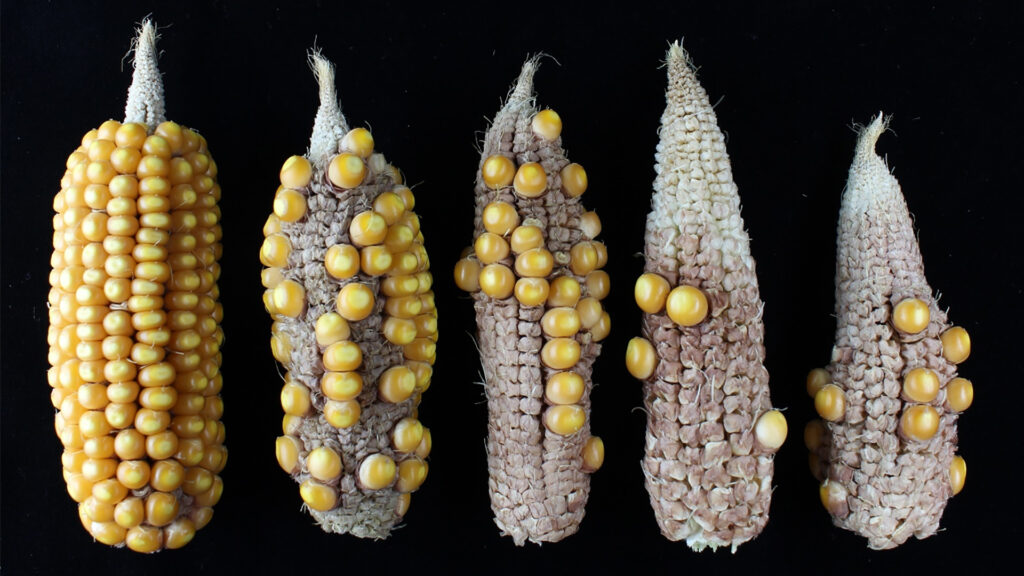By Kirsten Romaguera Rabin, University of Florida Institute of Food and Agricultural Sciences
People aren’t the only ones stressed by heat waves. For many plants, higher-than-anticipated temperatures can lead to water loss, wilted foliage and unsuccessful pollination.
University of Florida scientists are investigating how to improve plant resiliency to high temperatures. Kevin Begcy, assistant professor in the UF/IFAS environmental horticulture department, is looking to how pollen develops in corn as part of a new, four-year project supported by a $650,000 grant from the United States Department of Agriculture’s National Institute of Food and Agriculture (USDA-NIFA).
Florida is the nation’s top producer of ready-to-eat sweet corn, although more acreage statewide goes toward production of the starchier field corn; some variety of maize is grown in most of the contiguous United States.

Begcy’s new research might inform corn breeding and production nationwide, in addition to other crops.
“From a scientific standpoint, we want to understand how pollen development in corn is impacted by stressors,” Begcy said. “But from a practical standpoint, we hope to find the set of genes that control the stress process, and then we can use that information to develop crops that can withstand the entire pollen development phase without suffering from heat stress.”
Begcy’s research focuses on different plant stressors – heat, drought, salinity – and considers the molecular level in identifying potential genetic resiliency markers. He regularly collaborates with UF/IFAS plant breeders to inform the progression of their breeding efforts. He said that future collaboration is among the eventual goals of this project.
Corn pollen development can be divided into seven stages, from a single cell to pollen germination. Begcy’s laboratory has developed a technique to examine each stage at the cellular level. This study will introduce heat stress during those individual stages, follow them through their maturation and see their impact on pollination in the non-stressed corn cob.
“Pollen is one of the most susceptible developmental stages for any plant,” Begcy said. “Studies have shown for years that pollen isn’t viable after being exposed to heat stress conditions. As we see here in Florida a lot, there may be one or two days of peak temperatures, followed by a return to expected temperatures. So, we wanted to answer a different question and identify whether stressors at the individual pollen developmental stages determine the outcome.”
Begcy’s team has already conducted preliminary research that showed when heat is introduced at an earlier stage of pollen development, the pollen does not germinate or grow properly. Therefore, some cobs will produce hardly any kernels.
Interestingly, another test’s introduction of heat stress during a later stage of pollen development resulted in what appeared to be proper germination, Begcy said. However, just like the earlier-stressed pollen, the resulting corn was misshapen and missing kernels.
The study is newly underway, with completion anticipated in April 2027.
This piece was originally published at https://blogs.ifas.ufl.edu/news/2023/07/10/heat-stress-pollen-research/
If you are interested in submitting an opinion piece to The Invading Sea, email Editor Nathan Crabbe at ncrabbe@fau.edu. Sign up for The Invading Sea newsletter by visiting here.



